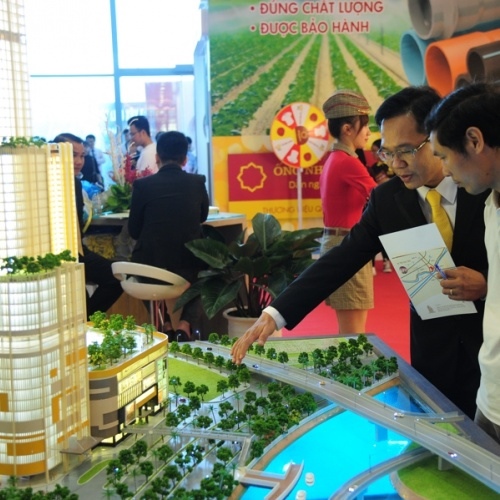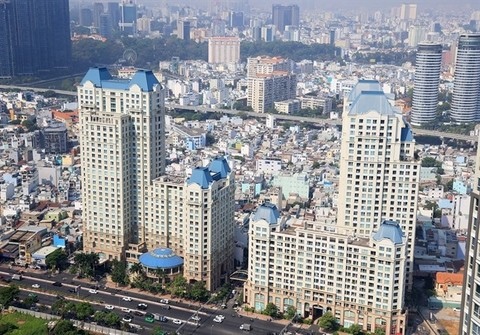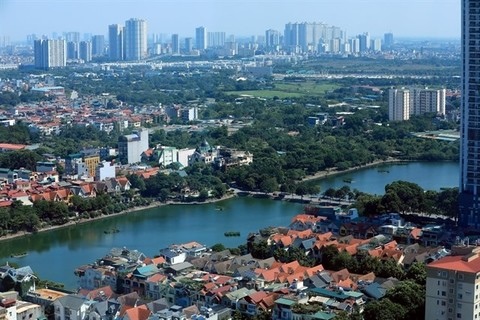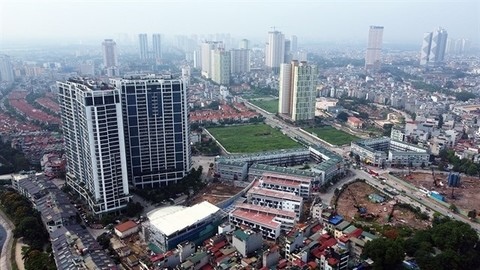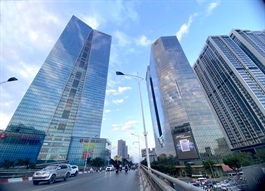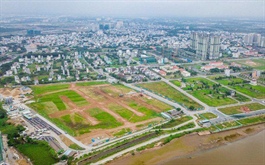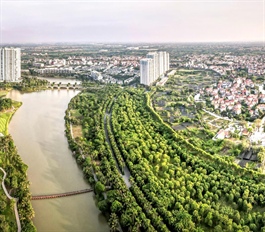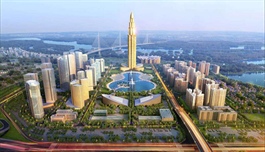Land law points further scrutinised
Land law points further scrutinised
Clarifications on land use rights and property ownership for overseas lenders have been offered to the government from the foreign business community.

In a seminar to collect opinions from enterprises and experts regarding amendments to the Law on Land held last week in Ho Chi Minh City, Seck Yee Chung, a representative of the Vietnam Business Forum’s Trade and Investment Working Group, said that Article 35.d of the draft law provided that domestic companies only have the right to mortgages with their land and properties attached to the land at credit institutions licensed to operate in Vietnam.
“This means that companies in Vietnam cannot mortgage their factory or land through foreign lenders, which creates great challenges for them to access competitive financing resources outside the country,” Chung said at the seminar, which was organised by the International Finance Corporation (IFC) and Ministry of Natural Resources and Environment (MoNRE).
“Foreign lenders will look for security assets of Vietnamese companies to secure their lending in here. The most valuable assets of a company include its rights over the project’s land and the construction works attached to the land,” Chung added. “This regulation must be revised because if foreign lenders cannot receive land use rights as secured assets, they would be reluctant to lend through a Vietnamese company.”
A presentative from the IFC, said that mortgaging of land use rights and assets attached to land for loans at international financial institutions is an important avenue that has been applied in many countries. Morgage restriction reduces foreign funding for the Vietnamese private sector and increases the borrowing costs of domestic enterprises, leading to a significant decrease in a competitive advantage over their foreign peers, he explained.
“The cost of foreign loans of Vietnamese enterprises will be increased because loan risks are higher than usual, and the lender will factor this into the loan interest rate. This especially affects large infrastructure and manufacturing projects, which must mobilise foreign financing as domestic investors and credit institutions are not able to meet the large and long-term financing needs of such projects,” the representative said, adding, “In addition, due to regulations on risk management, domestic credit institutions cannot lend to a project or business beyond a certain limit.”
According to the Law on Housing, foreign entities and individuals are entitled to possess houses in commercial housing construction projects. However, according to the draft land law, land users who are entitled to be granted certificates exclude foreigners.
“Consequently, foreigners in Vietnam have been seeking ways to circumvent the law if they desire to possess and conduct transactions on housing; meanwhile, they are not being protected by the Law on Land nor are they entitled to certificates,” Seck Yee Chung said.
Participants at the seminar last week recommended that the legislation’s drafting team consider and supplement regulations on land users in the draft to stipulate that foreign entities and individuals are subject to land use rights recognised by the state. At the same time, consideration should be given to supplementing regulations on the rights and obligations of foreign entities and individuals to use land in Vietnam.
“Without this protection, there is a high risk of black-market developments, real estate bubbles, and distorted housing prices in the top-line segment of residential real estate,” Chung added. “The legislator can counteract these developments by granting foreigners a limited land use right, which is certified in a publicly acceptable form.”
Speaking at the event, MoNRE Deputy Minister Le Minh Ngan acknowledged the large scale of the land law changes. “Preparation and construction must focus on investing effort and intelligence, not only of the agencies directly involved in the legislative process, but all agencies in both the political system and in society,” Ngan said.
The draft Law on Land is set to contain policies such as renewing and improving the quality of land use planning; fulfilling regulations on land allocation, lease, and land use change; regulations on compensation, resettlement, and land recovery for security purposes; and land price determination mechanisms, among other aspects. Policies related to the use of land by enterprises are also included, such as specific provisions on land allocation and lease without auction, land lease with one-time or annual payment, and supplementing regulations for small- and medium-sized enterprises to access land.
According to Ngan, since early this year, over 8,000 direct opinions and 75 documents from individuals and organisations have been sent to the MoNRE. All comments are being fully absorbed by the drafting agency. “We’re determined that the revised law creates a transparent mechanism to improve the efficiency of state management of land, ensure the promotion of resources, and also meet the requirements of the Party and the people,” he stressed.



